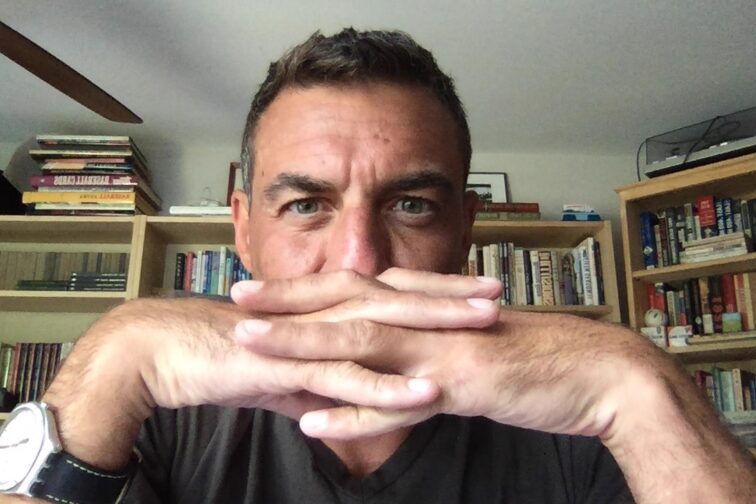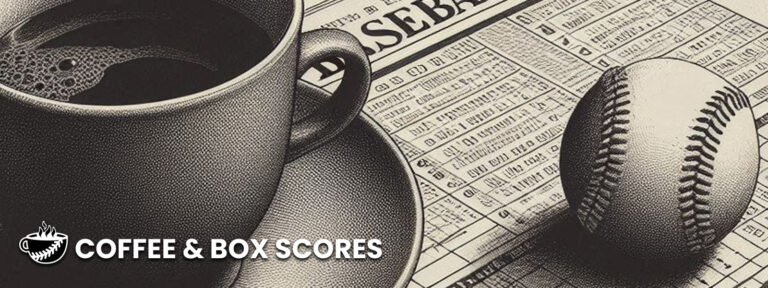It’s Hall of Fame consideration season. For the rest of the calendar year, Connections will be looking at some of the names on the 2025 ballot.
Once upon a time, Bill James wrote this about Yogi Berra: “Yogi was the only catcher in baseball history who could catch 145 games a year, hit cleanup, and never have an injury or a bad season.”
Depending on how Josh Gibson is incorporated into the debate, Johnny Bench is a finalist in the “greatest catcher of all-time” conversation and Mike Piazza appears in the same ultimate faceoff for the label as the “greatest offensive force embodied in a backstop.”
Brian McCann has a statistical connection with these three bolded beacons of the position.
Most Seasons – 67%+ Games at Catcher & 20 Home Runs
11 Johnny Bench and Mike Piazza
10 Yogi Berra and Brian McCann
9 Gary Carter
8 Carlton Fisk and Jorge Posada
7 Roy Campanella and Lance Parrish
As a 20-something, the Braves catcher was landscaping a path that, if it wasn’t going to elevate toward the status of the inner-circle greats, it was at least pointing in the general direction of joining them in Cooperstown. By the conclusion of the 2013 season, he had cranked out 176 homers, powered 405 extra-base hits, had driven in 661 runs and had collected all sorts of accolades and hardware: seven All-Star nods, a quintet of Silver Slugger Awards. Those specified numerical tallies all placed him within the top-eight for catchers through their age-29 seasons; he was cavorting with the likes of Berra and Carter and Bill Dickey. Among backstops with at least 1,000 games through their age-29 seasons, McCann’s 117 OPS+ was fifth best, behind marks from Bench (130), Mickey Cochrane (126), Ted Simmons (126) and Carter (120). He was still on the good side of 30 years old. The road had been paved – a sturdy first decade to naturally and without too far fetched a-gazing suggest a mile-marker named “Hall of Fame” somewhere out in the future.
On the other hand, McCann had not walloped the baseball consciousness: neither the best hitting catcher in all the land (Joe Mauer or Buster Posey) nor status as a defensive whiz (no way he was going to break through Yadier Molina’s hold on Gold Gloves in the NL). There was one way-down-the-ballot mention in MVP voting. There were a few appearances in postseason play, all failing to reach beyond the Division Series. There were no singular campaigns, those exceptional, resonant years with outsized importance that have a way of elevating status long after the accumulation of numbers and narratives has concluded. If McCann was going to continue to make a case for immortality, it looked as if it would be in the mode of a compiler – his 30-something years would need to, if not match his twenties, be a legitimate companion.
That’s a dangerous challenge for a catcher, where the physical accumulation tends to drastically impinge on the numerical aggregation. And so it was for McCann, who had squatted behind the dish for more than 1,000 games before his 30th birthday, a tally rarely reached in the game’s history. Leaving his hometown club, Atlanta, McCann set off for the AL and New York to test his thirties against all the precedents and tales of steep diminishment.
There would be a few more 20-homer seasons, one final Silver Slugger (giving him six altogether, tied for the third most at the position since the award was first dealt in 1980), a World Series title as a member of the 2017 Astros and then one final year with the club that had framed his rise. But before celebrating his 36th birthday, McCann had played his final game – one that saw him compete in his 1,612th game behind the plate (a top-25 mark all-time). Reassessing his place in the catching annals, some of the ranks were still notable – the eighth-most longballs, the 13th most extra-base hits and RBI, an OPS+ that ranked as the 13th best (min. 1,500 games at catcher) – but the positioning had slipped enough to detour McCann from Hall of Fame to Hall of Very Good. Like so many before him, McCann had kind of quietly faded into the background.
Among his backstop contemporaries, one – Joe Mauer – has already joined Berra, Bench, Piazza and Gibson in Cooperstown. Buster Posey will be judged for the first time on the 2027 ballot while Yadier Molina will follow Posey in ’28. This pair, presumably, will generate a lot more consideration than McCann, who is on the ballot for the first time in the upcoming election.
Tigers greats Bill Freehan and Lance Parrish lasted just one year on a Hall of Fame ballot; the same quiet conclusion arrived for Yankees icon Jorge Posada. It’ll be surprising if McCann experiences a different fate, but ultimately, that’s the appropriate company for the first-timer. He was never going to catch the inner-circle backstops, and he needed an uncommon second half – a defiance that is accorded to only a few – to catch the necessary momentum and cumulative numbers to legitimize his candidacy. Instead, he progressed along a more recognizable path, where the thousands of crouches and barrage of baseballs colliding with his hand caught up to him.
Hall of Very Good is still a special place to be – this imaginary hall blended with its real partner would currently hold room for how many catchers – 35 or 40? So to the Hall of Very Good we shall place him, where Brian McCann can rest his knees and swap stories with Freehan and Kendall and Munson and the others, perhaps taking pleasure in relating how he, and none of these others, can claim all of those 20 homer seasons that place him in some fine company.
Thanks to Baseball Reference and its extraordinary research database, Stathead, for help in assembling this piece.

Roger Schlueter
As Sr. Editorial Director for Major League Baseball Productions from 2004-2015, Roger served as a hub for hundreds of hours of films, series, documentaries and features: as researcher, fact-checker, script doctor, and developer of ideas. The years at MLB Production gave him the ideal platform to pursue what galvanized him the most – the idea that so much of what takes place on the field during the MLB regular and postseason (and is forever beautifully condensed into a box score) has connections to what has come before. Unearthing and celebrating these webs allows baseball to thrive, for the present can come alive and also reignite the past.


